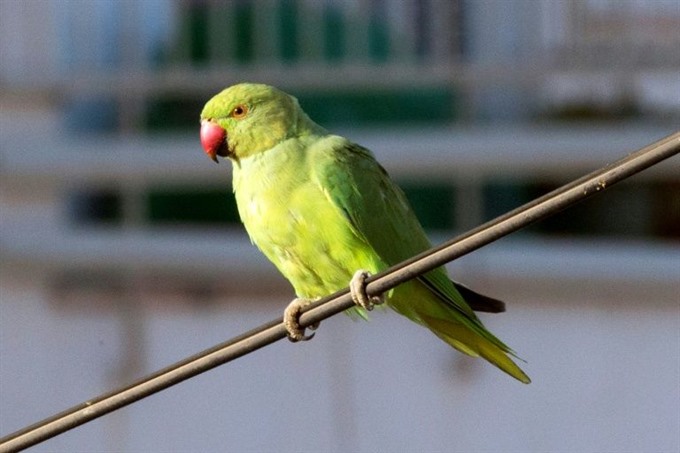 Life & Style
Life & Style

To their detractors, they’re dirty alien invaders whose incessant chatter ruins Sunday morning lie-ins. To their supporters, they’re beautiful, cheerful reminders of warmer climes amid the winter chill.
 |
| Thousands of rose-ringed parakeets, close relatives of parrots, have made their home in the Netherlands over the past five decades, and their growing presence has become a source of noisy debate. - AFP Photo |
THE HAGUE — To their detractors, they’re dirty alien invaders whose incessant chatter ruins Sunday morning lie-ins. To their supporters, they’re beautiful, cheerful reminders of warmer climes amid the winter chill.
Love ’em or hate ’em, thousands of rose-ringed parakeets, close relatives of parrots, have made their home in the Netherlands over the past five decades, and their growing presence has become a source of noisy debate.
Like in other European cities such as London and Paris, the colourful green birds with distinctive red beaks have proliferated over the years.
They gather in garden trees and around schools; they even roost outside the Dutch parliament in The Hague, with urban legend telling how one debate was drowned out by the birds’ constant calls.
Imported from Pakistan in the 1960s to brighten the aviaries of wealthy Europeans - especially the Dutch and British - over the years many escaped and have now successfully adapted to life in the city.
Indeed, the rose-ringed, or ring-necked parakeet was listed among Europe’s top 100 most invasive species in the scientific journal Biological Invasions in December.
While their fans claim they are victims of a knee-jerk fear of anything new, some groups actively lobby for their numbers to be culled.
In Amsterdam, where one of the largest colonies of parakeets lives, the town hall has banned residents from putting out food in some areas or risk a 70 euro (US$86) fine.
Critics argue the flying flocks undermine the natural order, pinching the resting spaces of owls and bats, leaving behind piles of bird droppings and ravaging trees and plants.
"Some residents are even thinking of moving house because of their infernal noise," said Wilfred Reinhold, president of an association fighting against the birds’ presence in the country. AFP




